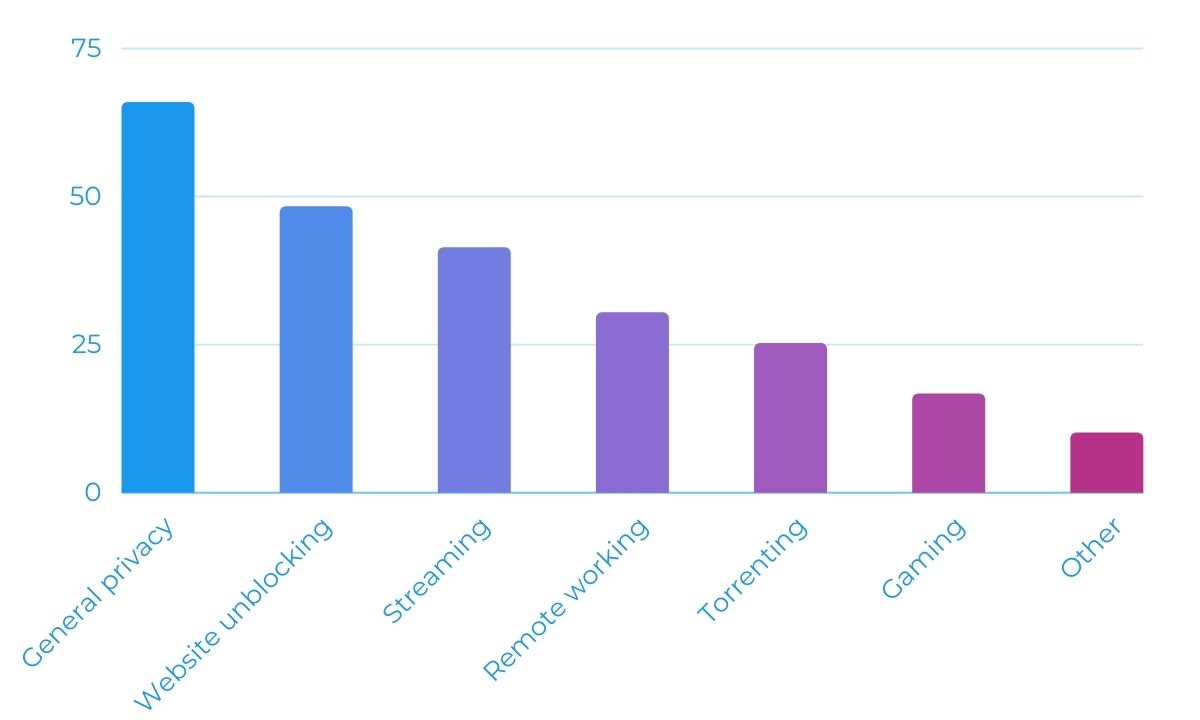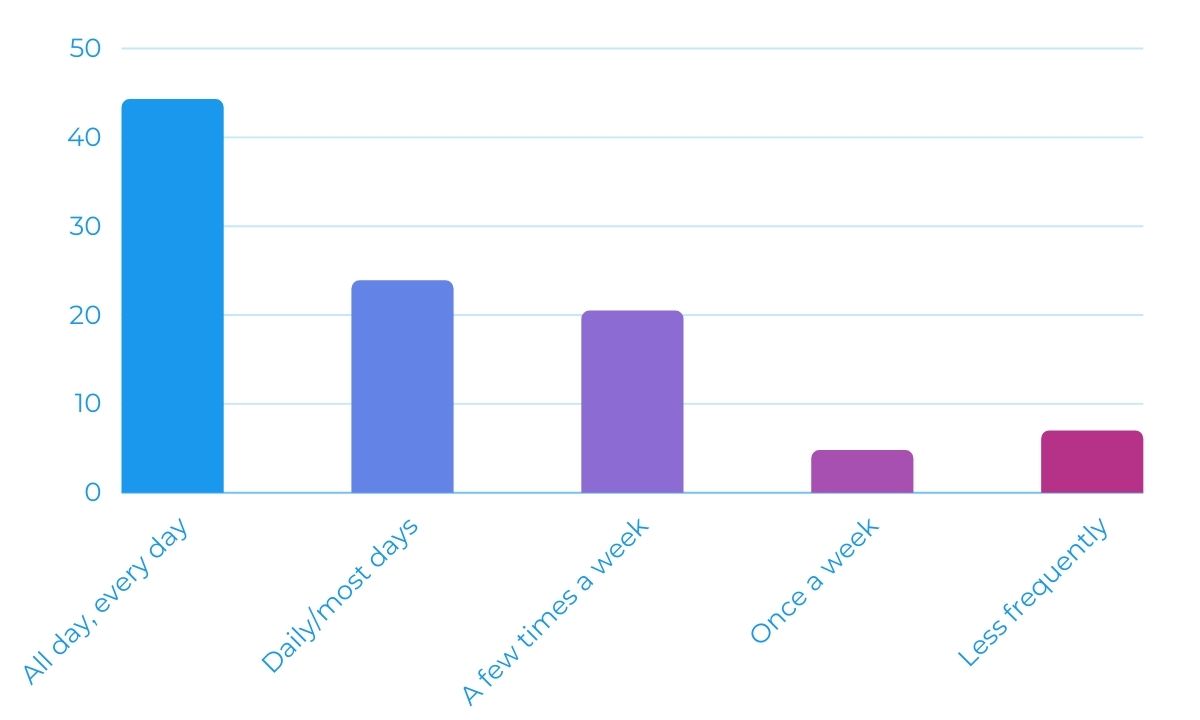Are Netflix VPNs legal?
Recently, Tom’s Guide and our sister site TechRadar launched a survey seeking to learn more about how people use streaming VPN services. As journalists and writers who cover the best VPN providers every day, we thought the issues we’d face would be pretty standard – respondents gaming the system to get a better chance at winning a prize, potentially unreliable results, and the inevitable aftermath of sorting through reams of raw data to find the interesting nuggets.
What we weren’t expecting was the apparent audience backlash. Within a few days of our promoted post on Facebook going live, we saw a number of commenters expressing their feelings in no uncertain way about the legalities of using VPNs to unblock streaming sites like Netflix, Amazon Prime, and more.
In retrospect, we can understand their apprehensions – streaming online has long been a battle between legitimate and pirated content, and using any method to circumvent restrictions can certainly have the tang of illicit activity.
So, in the hope of assuaging any fears you may have, we’re going to run down exactly what you’re doing when using a Netflix VPN, why you’re not breaking the law, and any other rules or regulations to be careful of in the process.
Is using a VPN to unblock Netflix legal?
Short answer? Yes. The biggest fear many have of accessing content online is whether or not it’s properly licenced – we’ve all heard horror stories of the careless torrenter being busted and convicted for having a cache of Game of Thrones MP4s on their hard drive.
The difference between stealing content and using a VPN to watch geo-blocked shows on Netflix is that the content is distributed to you by Netflix, which has – in one way or another – paid for it. The content is legally licenced by Netflix for distribution in certain territories, while different streaming services may distribute it in others.
For example, if you want to watch one of our top US-only Netflix shows but you’re outside the country, using a VPN can get you access. Some people might worry that this is equivalent to stealing, but since you’ve paid for the content through your monthly bill, you’re not infringing any copyright law.
There’s less of a moral dilemma, too, compared to piracy. Even if you’re using a VPN to access geo-blocked content, you’ve still paid for the show you’re watching, so you’re supporting its creators by paying for Netflix. While it could be argued that you’re taking business away from other streaming providers, we’ll let you decide whether that’s an issue that should be weighing on your conscience or not.
So you may not be breaking the law, but what about Netflix’s own T&Cs…?
Is it against Netflix’s terms & conditions to use a VPN?
It’s well worth noting that while it’s not illegal in the eyes of the law, using a VPN to access the best Netflix shows is very much against Netflix’s T&Cs, and the streaming giant reserves the right to terminate accounts found to be doing this.
However, we’ve never heard of this happening, and it’s clear why. Even though you might be breaking its rules, Netflix would much rather keep your subscription rolling in every month than ban you for using a VPN to access content. In turn, keeping you locked into a Netflix subscription probably keeps you away from other competing streaming services.
How many people actually use a VPN with Netflix?
In another survey we conducted, we asked readers to tell us how they actually use their VPNs day-to-day. While the responses we received were hardly startling, they confirmed what we already suspected: a lot of people use them for streaming.

If this survey had been conducted five or ten years ago, we strongly suspect that the privacy bar would be even heftier, along with torrenting and remote working – the triumvirate of traditional VPN uses.
However, as VPNs have matured, addressed issues to do with connection speeds, and developed into user-friendly software you can use on any device imaginable, we’ve seen their ‘casual’ use go up, too.
Using the software as a gaming VPN is now possible thanks to protocol improvements and the introduction of the superfast WireGuard. A similar rise in using VPNs for unblocking regular websites has been prompted by the ease of use of consumer VPNs, and the rise of Internet censorship in countries like China and Iran.
Most notably, though, unblocking streaming content has absolutely exploded. This is in part thanks to the wide marketing of VPN services as streaming add-ons, as well as the ongoing diversification of the streaming market that has led to licenced content being spread thinner between an ever-growing selection of services. Getting access to everything for a single bill is more of a concern than ever – and a VPN is often an easy solution.
How often do people use VPNs with Netflix?
Even though it’s clear that plenty of VPN users are reaping the rewards of using a VPN to unblock geo-blocked shows, it’s conceivable that these users might only occasionally switch on the VPN to stream a movie or binge a series, and then forget about the software. However, in our findings, paying VPN users really are getting their money’s worth.

Of the users who said they use a VPN to stream, a huge 44% use their VPN all day, every day. Put another way, almost half of streaming VPN users never turn it off.
While it’s impossible to tell how often these users are actually unblocking Netflix content from our data, it’s evident that most people have no issue using a VPN daily and making the most of what they can offer – be that accessing more streaming content, increasing general privacy, or staying safe when torrenting.
Is it safe to use a VPN with Netflix?
While using a VPN to unblock content may be against Netflix’s T&Cs, the risk is minimal – as we said above, the streaming site is probably more happy to let this slide than lose a paying customer.
Beyond that, there are absolutely no laws restricting you from accessing content that’s hosted on Netflix but is unavailable in your current location. It’s not piracy, you’re still supporting the filmmakers, and you’re saving money in the process. In every way, it’s a better option than breaking the law and downloading a copyright-infringing version elsewhere – and most importantly, it doesn’t put you at any risk.
Which VPN do we recommend?
For all the latest Technology News Click Here
For the latest news and updates, follow us on Google News.
